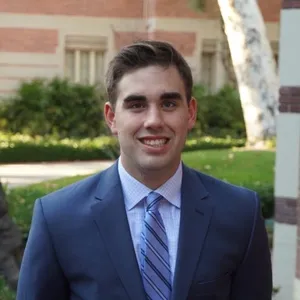NATIONAL MUSEUM OF NATURAL HISTORY
Celebrate Valentine’s Day With the Ocean’s Oddest Couples and More Natural History Programs This February
Join the National Museum of Natural History for programs on asteroid samples, fossils and chimpanzees
:focal(512x346:513x347)/https://tf-cmsv2-smithsonianmag-media.s3.amazonaws.com/filer_public/52/29/5229b274-0763-4fb4-9f65-7f46eced066f/2008-12706_santoceanhall-s.jpg)
This February, the National Museum of Natural History has events everyone is sure to love. Spend Valentine’s Day with the oddest oceanic couples, learn how chimpanzees influence research on human evolution and hear the inside scoop on the museum’s historic Bennu asteroid samples.
Dive into Puerto Rico’s Deep Sea Habitats
February 9, 2:00 p.m. ET
/https://tf-cmsv2-smithsonianmag-media.s3.amazonaws.com/filer_public/95/91/95912513-1c82-4284-b09c-595b1c6415f8/img-20230426-wa0045.jpg)
The best way to see many living corals is by snorkeling through shallow, sunlit reefs. But some coral species thrive in the deepest, darkest depths of the ocean. These corals have adapted unique features and behaviors to survive in extreme conditions hundreds or even thousands of feet below the surface. Instead of forming rock-like coral reefs like their shallow-water cousins, they pile on top of each other in shapes resembling trees, feathers, fans or columns that can be dozens of feet tall.
On February 9th, head to the museum’s Ocean Explorer Theater to learn all about the deep-sea habitats off Puerto Rico, which are a treasure trove of coral biodiversity. Chat with museum scientists, watch expedition footage and see coral specimens up-close. This program is presented by NMNH Coral Researchers Jeremy Horowitz, Luke McCartin and Annemarie Wood.
Enjoy Fossil Fun for the Whole Family in Deep Time
February 10, 10:00 a.m. ET
/https://tf-cmsv2-smithsonianmag-media.s3.amazonaws.com/filer_public/10/ff/10ff5a8b-72f8-4d1c-b2fe-8745a030affe/img_3689.jpg)
The museum’s early-education World and Me team is going out into the museum for a special fossil-focused adventure that’s fit for the whole family! Participants will experience prehistoric creatures like dinosaurs and woolly mammoths in the museum’s world-class David H. Koch Hall of Fossils — Deep Time while learning from Smithsonian scientists and educators. During the program, visitors interested in exploring the Earth’s deep past can touch real fossils, observe experts at work in the FossiLab, engage with experts throughout the exhibit and much more! No registration is required and families are welcome to join at any time during the duration of the event and stay as long as they like.
Celebrate Valentine’s Day by Learning About the Oceans’ Oddest Couples
February 14, 1:00 p.m. ET
/https://tf-cmsv2-smithsonianmag-media.s3.amazonaws.com/filer_public/4f/54/4f546be3-ae91-4cdd-8db6-867c06b7bd2c/pygoscelis_papua_-jougla_point_wiencke_island_palmer_archipelago_-adults_and_chicks-8.jpg)
The ocean is a tough place to be single. As a result, many marine creatures team up with other species to survive. These mutually beneficial relationships include everything from shrimp and small fish picking a predator’s teeth clean to bioluminescent bacteria helping a bobtail squid camouflage itself in moonlit waters.
This Valentine’s Day, museum visitors are invited to fall in love with some of the ocean’s oddest couples, including corals that can’t live without their photosynthetic algae to penguins that use pebbles to propose. Stop by the Sant Ocean Hall to learn from museum scientists and educators about all manner of curious ocean connections!
Discover How Chimpanzees Help Researchers Understand Human Evolution
February 15, 11:30 a.m. ET
/https://tf-cmsv2-smithsonianmag-media.s3.amazonaws.com/filer_public/90/4a/904a5ced-6174-4a7d-858f-6d24791c8c4a/screen_shot_2024-02-07_at_44027_pm.png)
As the closest living relatives to humans, chimpanzees and bonobos provide a wealth of insights into our own species’ evolutionary epic. Which is why University of Michigan primatologist John Mitani has spent the past 28 years in the field in Uganda investigating Ngogo chimpanzees. The Ngogo chimpanzees have been featured in several wildlife documentaries, including Netflix’s Emmy-nominated Chimp Empire series (2023), which provides novel insights into the behavioral similarities and differences between chimpanzees and humans.
In this presentation, which is part of the museum’s monthly Human Origins Today series, Mitani will share more about the intriguing Ngogo chimpanzees and how results from this research can help us better understand human uniqueness and evolution. The discussion will be moderated by museum paleoanthropologist and educator Briana Pobiner.
Learn How Historic Samples of the Asteroid Bennu Shed Light on Earth’s Origin
February 21, 6:30 p.m. ET
/https://tf-cmsv2-smithsonianmag-media.s3.amazonaws.com/filer_public/65/9d/659d1aee-3911-4484-b2f1-cc9a1928e6da/b3_-_bennu_sample_capsule.jpg)
Last fall, NASA’s OSIRIS-Rex mission successfully retrieved samples from the hazardous skyscraper-sized asteroid Bennu and delivered them to the Smithsonian’s collections – a daring and incredible scientific achievement. Unaltered by Earth’s atmosphere, these samples, speculated to date back to the formation of the solar system 4.5 billion years ago, provide scientists an opportunity to better understand the origins of Earth, the solar system and life itself.
Join NMNH director Kirk Johnson for a conversation with Tim McCoy, a research geologist and curator of the museum’s meteorite collection, Mike Ackerson, curator of the National Rock and Ore Collection, and Erica Jawin, a postdoctoral research geologist at the National Air and Space Museum. The group will discuss topics surrounding the asteroid Bennu and how the researchers are studying its samples to answer big questions about Earth’s deep history. Guests can stay after the discussion to touch a meteorite!
Attend the Smithsonian’s Annual Mother Tongue Film Festival
February 21-24, see website for showtimes
/https://tf-cmsv2-smithsonianmag-media.s3.amazonaws.com/filer_public/20/24/20245942-3480-49c5-99ba-e5594a5b57fd/nii-nuu-full.jpg)
Each year, the Smithsonian’s Mother Tongue Film Festival celebrates cultural and linguistic diversity by showcasing films and filmmakers from around the world, highlighting the crucial role languages play in our daily lives. The festival is a public program of Recovering Voices, a collaboration between NMNH, the National Museum of the American Indian, the Center for Folklife and Cultural Heritage and the Asian Pacific American Center.
In 2024, the Mother Tongue Film Festival will showcase films that record personal journeys and explore the drive to find balance and harmony within our world, communities, families, and selves. This year’s films include features on efforts to reclaim traditional knowledge and sacred objects, level the cultural playing field and finding sustenance. Each screening will be followed by Q&A sessions with the filmmakers and Smithsonian experts.
Related Stories
NMNH in Review: How an Asteroid Sample Traveled From Outer Space to the Museum’s Mineral Hall
Smithsonian Expedition Yields a New Species of Deep-Sea Coral
Deck the Halls With Nature Crafts and More Natural History Programs This December
How Smithsonian Fossil Preparators Are Re-Excavating a Tyrannosaur From Its Past on Display

